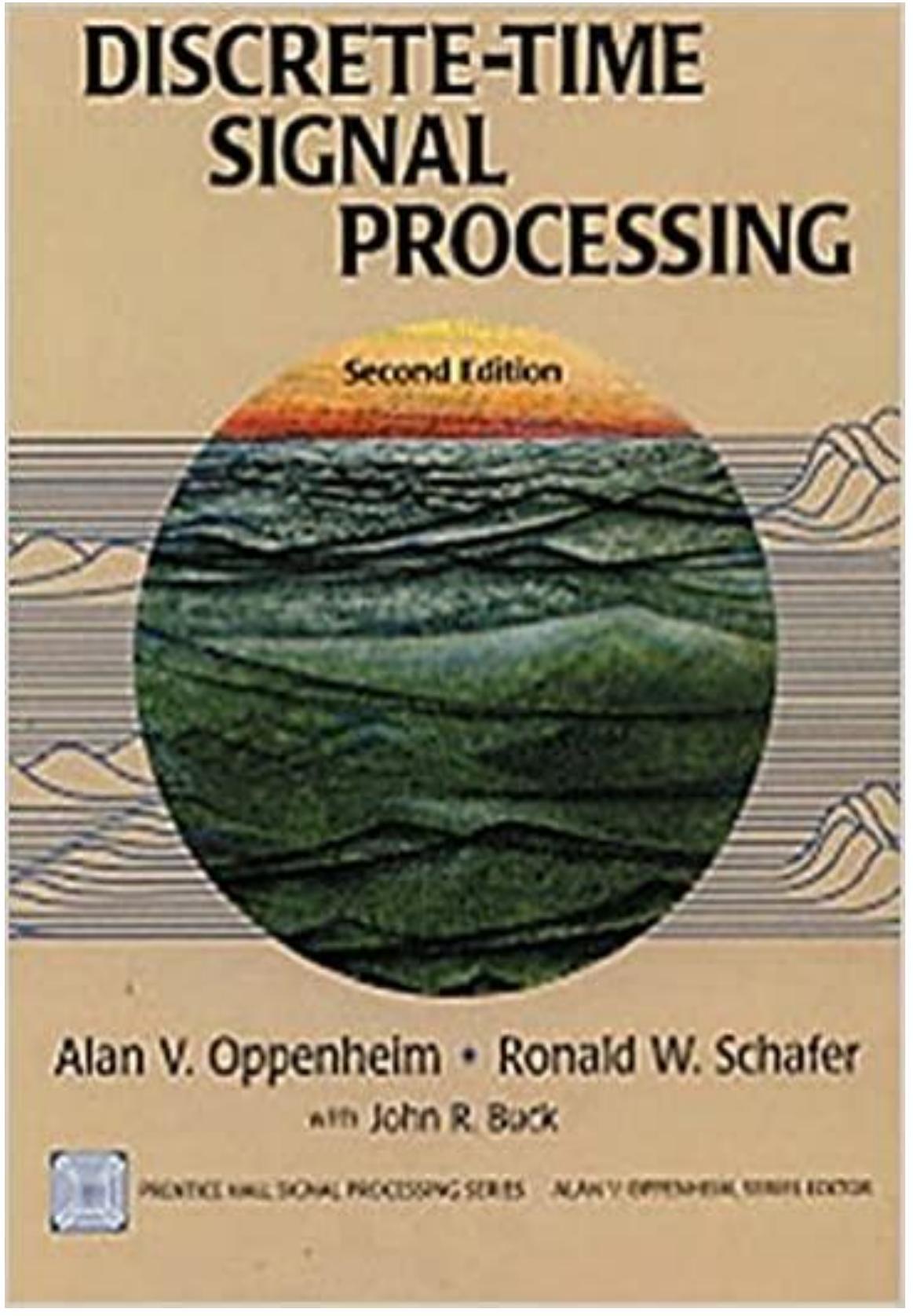PRISONERS FLEE
The mess truck had been driven into the court of the hotel, and the escaping prisoners soon relieved it of its burden of food, principally hard-baked or canned. This was distributed as equally as possible among them all, and then the departure from the town was begun.
They were only a short distance from a main highway over which the noises of heavy and rapid traffic could be heard constantly. So their chief caution was to avoid attracting attention to their unusual proceedings from the soldiers and truckmen moving along this route.
It was quickly decided by the leaders of the escaping prisoners that they had better make their departure by way of the path that led down the hill near the sandpit, as it was well shielded for a quarter of a mile or more with small trees and bushes from the top of the hill down into a sort of ravine through which ran a small stream of water. Moreover, all admitted without debate that it was far more important for them to find a good place of concealment than to travel any considerable distance toward the lines of battle before daylight.
Phil, Evans, Tim, and one or two others who had exhibited leadership qualifications walked ahead of the column of Americans and Frenchmen and held an almost incessant discussion of plans as they proceeded. The more important of their conclusions were passed back among their comrades in the rear to keep them informed and reassured that the leaders were conducting the escape
intelligently. One line of suggestions offered by Phil and accepted by all with hopeful enthusiasm was as follows:
“We ought to work our way as close as we can to the rear line of the boches with safety, moving forward at night and hiding in the daytime, and wait for the time when the big drive of the Allies pushes the enemy back. After they have been pushed back beyond our hiding place, we can come out and rejoin our comrades and take a hand in the fight. I figure that it’ll be principally open fighting with lots of rifle and machine-gun action. The boches won’t be strongly intrenched, and if the Allies come back at ’em as strong as I believe they will, their heavy guns won’t have much to do; and if we find good hiding places, we ought to be comparatively safe. There’ll be a lot o’ bombs dropped from the air, but our chances of keeping out of their way will be much better than our chances would be in the midst of a heavy bombardment from big guns.
“The enemy’s advance over these grounds has been very rapid and no doubt they have done little cleaning up after them. If we go along carefully, we ought to pick up enough guns and ammunition to arm every last one of us, and if we get in close quarters some time we’ll be able to give a good account of ourselves. There’s little danger of our meeting a very large body of the enemy miles behind their lines if we keep clear of their routes of communication.”
“What’s your idea of a good hiding place for us?” asked Tim.
“A deserted village like the one we’ve just left,” Phil replied. “Second-best place perhaps would be a group of farm houses.”
“How about food if the Allied drive holds off several weeks?” was Tim’s next question.
“That’s a matter we’ve got to look out for without delay. It’ll probably be hard picking, but if everybody keeps his eyes open. All the gardens and fields no doubt have been pretty thoroughly devastated, and yet there’s always bound to be some pickin’s left here and there. We may find a few chickens, if we watch carefully, but we’ll have to knock ’em over with clubs—no shooting, you know.”
These suggestions rendered Phil more popular than ever among the escaping American and French prisoners, so that by the time all had discussed them fully he was tacitly voted leader of the fugitive expedition. From that time on all looked to him for advice whenever any problem of common interest came up for solution.
The route taken was considerably of a “cross-country” character. They avoided highways that appeared to have been much frequented, for fear lest at any moment they run into an enemy patrol or expedition of some sort that would demand an explanation of their wanderings. So across fields and meadows and lowlands overgrown with weeds and bushes they went, until finally Phil called a halt near a group of farmhouses and said:
“It must be almost daybreak. Here are two or three houses and barns that ought to conceal us very well until the sun goes down again. Let’s investigate, and if there’s nobody on the premises we’ll file in and take charge.”
Several scouts were sent ahead to ascertain, if possible, whether the buildings were deserted. In a short time they reported that they were unable to find evidence of anybody in possession, and the little army of prisoners-at-large behind the enemy lines filed in and took refuge for a day’s hiding.
CHAPTER XXIX IN HIDING
The first day of freedom for the escaped prisoners of war in the land of their captivity was spent midway between two lines of communication that ran from the boche armies back to their bases of supply. One of these routes lay about a mile to the north and the other about a mile to the south of the group of farm houses in which the fugitive Americans and French were concealed. At points in both of these routes they could see numerous motor vehicles rushing in both directions, probably bearing wounded and reserves as well as supplies. A little nearer to the north also could be seen crews of men at work repairing a railroad bed and tracks that undoubtedly had been blown up by the French in their retreat.
It was agreed that the men should move about very little in their quarters during the day. Lookouts were stationed at certain windows and doors of the farm buildings, although these positions were camouflaged as much as possible with articles of furniture, farm implements, straw, et cetera, to prevent any chance betrayal of the hiding place of the escaped prisoners.
These lookouts also inspected as best they could the harvest possibilities of the agricultural vicinity, and it was estimated that even in the dark a considerable supply of vegetables and nearly ripened apples could be gathered. In a bin in one of the barns was discovered several bushels of year-old barley.
In the course of the day, between sleeps, Phil, Tim and Evans, from the loftiest viewpoint attainable in the cupola of one of the barns, made a studied survey of the country to the west. They found
that they had approached to within a mile and a half of a small village directly in their course of advance, and that perhaps not more than two miles beyond this were the (probable) ruins of another French town. Phil had not been in France long before he observed that the municipalities, large and small, are situated much more closely together than are the cities and towns of even the most thickly populated portions of America.
Phil and Tim also had opportunity during this day to recount in detail their experiences to each other since their separation in Belleau Woods. Phil also questioned his friend regarding the wound that had rendered him unconscious for fifteen or twenty minutes on the scene of the novel battle in the ravine. In reply, Tim pulled off his overseas cap and disclosed a small crudely-made plasterbandage, that was held in place by the cap.
“It wasn’t a bad wound,” he explained; “but it might easily have fractured my skull. The bullet hit the side of my head a good hard rap, but glanced and cut a furrow in my scalp.
“I came to just as that funny looking bunch o’ boches were leading you off through the timber. The sight o’ that put a thrill of life into me and I staggered to my feet and started after you. The boches had left my gun lying on the ground, thinking, I suppose, that I was dead and would be unable to use it.
“I was just waiting until I could get control of myself before I opened fire on those pesky Huns. If I’d not felt quite so shaky on my pins I’d ’a’ blazed away as soon as I waked up, for I figured the firing would attract friends our way. But I guess that fellow that jumped onto your back was the smartest one in their crowd, for he must ’a’ figured we were likely to have comrades in the neighborhood and been on the lookout for ’em. Anyway, before long he played the same game on me that he played on you, sneaking around and jumpin’ on me from behind.
“Well, they took me along with you only a short distance behind, and you never knew I was trailing along. I walked back behind with
a couple of boches and jollied them along the best I could. I guess I succeeded pretty well, judging from results.
“It seems that this squad were part of a regular crew that made trips with prisoners back behind the lines and took part in the fighting while waiting for a bunch of prisoners large enough for a trip. At least, that’s what I gathered from their conversation. You know I learned to talk German pretty well while living with a German family in Pennsylvania, and I made good use of it with these fellows. Camouflaging my boasts with all the modesty I could put into words, I told ’em all about my accomplishments. I guess I hit ’em about right when I told ’em I could cook as well as any Pennsylvania-Dutch grandmother, and they set me to work on a mess truck right away. That’s why you didn’t see me during the trip, Phil. But I picked you out in the line.”
“I don’t admire your cooking very much,” his friend commented with a smile. “Is that what you call Pennsylvania-Dutch cooking?”
Tim grinned ruefully.
“’Tisn’t my fault,” he said. “Those parsimonious Prussians stood over me and told me how much oil I could burn to warm a barrel o’ stew. And if the first match didn’t light the burner, you folks ’u’d have to eat your meal cold, they said. Oh, they’ve got everything down to an efficiency and conservation basis for winning the war, they have.”
“How did you get away from them?” Phil asked.
“Just walked away,” Tim replied in a matter-of-fact manner. “It was really funny. I guess they were all interested in that wine cellar that one o’ them discovered, but I didn’t know it at the time. Anyway, they seemed to lose all interest in me, and several times I found myself all alone. I was so astonished that I didn’t have sense to cut stick until I concluded that I was an everlasting fool if I didn’t, and I don’t believe they know I’m gone yet.”
“They’ll know about the time they’ve sobered up,” Phil returned with a prophetic grin. “And by the time the whole truth of
developments dawns on them, there’ll be something doing, believe me.”
CHAPTER XXX
AN AUDACIOUS SCHEME
As soon as the dusk of evening was sufficient to obscure objects of any considerable size at a distance of a hundred yards, several scouting and foraging parties were sent out with instructions to report back in about two hours. The foraging parties were directed to gather in whatever vegetables and fruit they were able to discover in the darkness, and the scouts were instructed to travel due west for several miles and determine if the way were clear for a general advance toward the battle area.
In the course of the day, Phil, Evans, Tim and several other leading spirits had held half a dozen conferences and discussed plans for the following night. It was during these conferences that the scouting and foraging plans had been outlined. A bird-call code was also agreed upon and practiced in the course of the day for the purpose of enabling the scouts and foragers to locate one another or their hide-out in case any of them should lose his way.
The latter precaution proved to be of considerable service, as did also a check-up system adopted to determine when all who were sent out on their several missions had reported back. By about ten o’clock (estimated), therefore, the checking proved all to have returned with a gratifying supply of raw food, including apples, vegetables, half a dozen chickens and a young pig. The fowl had been captured alive, and it was decided to carry these to their next stopping place, but the pig, which one of the men had slain with a heavy club without the provocation of a squeal, had to be left behind.
The scouts brought back information to the effect that there was a clear field between them and the next town, and that a careful inspection failed to disclose a sign of an occupant in the place. So far as they were able to determine, the village was abandoned by both inhabitants and invaders.
Accordingly a silent, ghost-like march was made to this place. On the way they passed a score or more of bodies of dead soldiers and a like number of guns were found lying near them. Most of these were boches, as was later discovered by examination of their rifles and cartridge belts by the Americans and French who took possession of them.
“The advance over this ground was so rapid that they didn’t have time even to pick up the arms of their own dead,” Tim observed to Phil.
“So much the better for us,” the latter replied. “And I’ve a suspicion that it will work to the benefit of the Allies in more ways than one. This is a drive of desperation, or I miss my guess, and the boches are going to find themselves in a trap. They can’t possibly have enough reserves to maintain such an advance as this. I bet you’ll find in the end that Marshal Foch is just leading them on.”
“I wish he’d have General Pershing throw in some of his troops at this point,” said Tim eagerly. “They’d drive these fellows back, and we could jump in and have some real fun as the Gray Coats came running past us.”
“I can hardly hope that things will turn out just the way our dreams picture them,” said Phil dubiously. “But it surely would be great if we could put over such a stunt as that. Anyway, when we pick our last hiding place we’ll pick it with that in view.”
“We don’t want to advance too close to the enemy’s lines,” Tim argued; “because they may take a notion to back up a little and establish some kind of headquarters right where we are stationed.”
“Yes, that’s another thing we want to keep in mind. And we must also try to pick buildings that are not likely to interest them for any purpose.”
These suggestions were communicated to the other escaped prisoners and were received with such favor that they were observed carefully in the selection of quarters not only for the following day, but for all the succeeding days that they remained in hiding behind the enemy’s lines. And these succeeding days were more than they at first reckoned on. They had no way of knowing that the Marines had saved the day at Chateau Thierry as well as at Belleau Wood, but there was not an American in this company of escaped prisoners who did not firmly believe that the advance of the enemy was cut short the instant the Yanks got into the front line.
And so as they advanced day by day, or night by night, nearer to the enemy’s lines, sometimes a mile, sometimes two or three miles, sometimes half a mile, they expected at any moment to discover evidence of a rapid boche retreat. However, more than five weeks elapsed before the hoped-for evidence of Allied victory appeared; after which events moved so rapidly that Phil felt like comparing his existence to life on the tail of a comet flying through space.
CHAPTER XXXI
PHIL’S STRATEGY
Again we find Phil and Tim within easy gun-roar of the battle line. But this time they are on the “other side of No Man’s Land.” And the roar is becoming louder and louder. Early one morning it burst forth with great volume. The hiding refugees had not realized they were so near the fighting front until this noisy evidence of proximity burst upon them.
There had been comparative quiet for several weeks. The boches had made their grand effort to break through the French line in the vicinity of Chateau Thierry. At this place it had seemed as if they were about to effect their purpose until two divisions of American Marines were brought up to relieve the French. Then the enemy was forced to a standstill, beyond which he was unable thereafter to advance a foot.
Of all this the fugitives knew nothing, and their knowledge of succeeding developments was quite as limited, save for the indications of sound or silence from the battle area. When finally the unmistakable evidence of another big battle reached their ears, they were quartered in several buildings in the business section of a town a few miles from the boche rear lines. They had selected these buildings with a view to their special serviceability because of facilities for concealment, intercommunication and defense or escape in case of attack.
There was no need of a crier to announce the long awaited event when finally it came. Everybody was on the alert almost in an instant. All day the roar of battle continued without abatement, but
the hidden fugitives had no way to determine how it was going. At dusk several scouts were sent on ahead to reconnoiter, but they were unable to obtain any information of definite character except that, it appeared, the enemy had launched a new drive against the Allies in the “great bend.”
The battle continued with unabating fury the next day and the next and the next. Finally two French soldiers, who said they were well acquainted with the vicinity and who spoke German fluently, donned enemy uniforms that they had taken from the bodies of slain boches, and set out under cover of the darkness to learn what was the situation.
“The battle of Chateau Thierry is being fought and it is being won by American Marines,” they reported on their return after several hours’ absence.
“Marines!” was the exclamation uttered by every American that received this message. They had not known that two divisions of fellow Sea Soldiers had stopped the enemy advance on Paris at this point more than a month before and, backed up with reinforcements, were now given the task of driving back the enemy in a sector where other veteran allied troops had failed.
For several days more they continued in hiding and fared pretty well meanwhile, all things considered. They managed to gather food enough, such as it was, to keep soul and body together without any “internal quarrel,” and they also gathered in a good supply of arms from the strewn battlefields of the vicinity; so that, emboldened by numbers and reports of successes of their friends on the other side of No Man’s Land, they felt like attacking a whole boche army in the rear.
Then at last came the announcement from scouts that the enemy was being driven back, slowly, it is true, but surely, and after this information reached them, it was not long before visual evidence of the retreat loomed before them over the western horizon.
This was followed by a tense waiting of several hours; then the boche soldiers began to pour into the ruined town.
“They’ll make a stand here, no doubt,” Phil remarked to several of his comrades; “and that means we’ll have to begin to get busy before very long. The Allies no doubt will train their heavy guns on this place, and we’ll get our share of the shelling. What we want to do is to spring a surprise on the enemy that will create consternation among them and make them think an attacking army has dropped out of the clouds on top of them.”
It was ticklish business, this waiting for the psychological moment which might be wiped out of future possibility almost any instant by the dropping of a few bombs that would heap masses of debris on top of them and convert their refuge into a tomb. Then suddenly Phil hit on a scheme that probably proved their salvation.
The two French scouts who had brought back information regarding the success of the Americans at Chateau Thierry were sent out again after they had volunteered for this second service planned by Sergeant Speed. How they accomplished their mission is subject almost for another book, for theirs was clever work, indeed. But they were aided materially by the confusion of the boches resulting from their recent defeat and the necessity for quick preparations for a new defense.
These two Frenchmen, Rene La Ferre and Pierre Balsot, made their way in Prussian uniforms through the newly forming enemy front and offered themselves as prisoners to a squad of Yanks who had just raided a machine-gun nest and were about to return to their own lines. They were hurried to headquarters, where they told their story. Their description of the location of the hiding place of the fugitive was so accurate that the American artillery was able to blow up the rest of the town without materially damaging the refuge of the 240 United States Marines and Frenchmen.
Still there remained a considerable force of the enemy machine gunners, riflemen and bomb throwers behind breastworks afforded by the ruins, and it was decided to dislodge these with a move planned by Phil and his comrades and communicated to the American command through the two French messengers.
After the village had been thoroughly wrecked by the artillery, the bombardment ceased and a charge on the town was made by hundreds of Marines, who ran forward in extended order to minimize the deadly effects of the sweeping machine-gun fire of the enemy. This was a signal for the escaped prisoners to dash forth from their places of concealment.
CHAPTER XXXII
MR. BOA AGAIN
It was one of the most rapid motion-picture affairs ever staged in real or cinematic life. What film enthusiast would not have given every other opportunity he might hope for in after years for this one?
The Yanks and the poilus poured out of those buildings like an army at least so it must have seemed to their astonished foes. All of them were armed with rifles, most of which had been picked up on the battlefield, and were well drilled and officered, for Phil had looked after this important factor while they were in hiding.
Far more rapidly than the narrative can be told, they charged in squads, routing out stronghold after stronghold, gun nest after gun nest. The boches did not know what to make of it, and their panic grew like a prairie fire. They had no way to tell how many they had to face or from what source they had sprung. The situation was almost ghostly in its aspect of mystery. Consternation presently seized the entire enemy force in this section and the helter-skelter race that followed in a mad effort to escape from something like a phantom foe sprung suddenly out of the ground was laughable in spite of the carnage with which it was associated.
Near the end of the fight Phil found himself face to face with a ponderous antagonist whom he was not slow to recognize. He cornered the fellow in a street from which exit was blocked, or greatly impeded, by heaps of debris. Mr. Boche then turned, at bay, with clubbed gun, missed his swing, the weapon flew out of his hands and Phil had the late commander of the “underwear squad” of
Belleau Wood at his mercy. It was “Mr. Boaconstrictor” of the large girth, “Count Topoff,” the so-called “general in disguise,” who wore the insignia of a Prussian second lieutenant.
“You’d better surrender,” Phil advised with a grim grin. “My bayonet maybe wouldn’t reach clear through you, and your royal family would be forever disgraced.”
Undoubtedly Phil would have succeeded in making a prisoner of his antagonist if one of those fortunes, or misfortunes, of war that always are beyond the control of even the most heroic had not intervened. A pillar-like remnant of a brick wall about fifteen feet away, probably shaken by some flying missile of the fight, toppled over, and a shower of masonry struck Phil on the head.
If it had not been for the helmet he had picked up several days before and preserved for such an occasion as this, he probably would have been seriously, if not fatally, injured. But in spite of the protection, the shock was sufficient to knock him over. Still he was not utterly incapacitated for further action, and he staggered to his feet, gripping his gun and attempting to recover his battling equilibrium.
But he was dazed, and his every effort was a wavering struggle. He saw his recent antagonist bearing down upon him and tried his best to steel himself for the meeting, but although armed and his assailant unarmed, his chances were hopeless. He was like a drunken man attempting to stab a piece of cheese with a table-fork.
“Mr. Boa,” the titled boche, brushed the bayonet aside like a reed in his path and gripped the boy’s left arm with his powerful right hand. In spite of his odd proportions, the fellow evidently had his share of physical strength. Phil tried to twist himself loose, but his efforts were of no avail. He must recover from the effects of the shock of the fallen masonry before he could hope to resist an assailant of half his ordinary strength.
“Count Topoff” held the boy with one hand, and with the other wrenched away his gun. This was rendered the more easy of
performance by a feeling of nausea that seized Phil and took away most of his remaining strength.
“Methinks that we have met before this time.”
If Phil had not been in his present condition of physical weakness, undoubtedly he would have observed with interest this evidence of a knowledge of English on the part of his captor. But it did occur to him with a sort of hazy giddiness that undoubtedly the fellow had understood his comment on the insufficient length of a bayonet to reach through the diameter of his girth. He was in just the condition of mind on the moment to face death with a sense of sickly humor.
“I suppose he’ll be taking a short cut measurement of my girth with a bayonet pretty soon if I don’t come to pretty quick,” was one of the ideas that whirled through the boy’s mind like a buzz-saw. “But he’s disposed to play with me a little, I take it from the kind of English he uses. Or is it because he got his knowledge of English by the study of stilted poetry at Heidelberg?”
“You played a nice trick on me and some of my comrades at Belleau Wood, didn’t you?” the boche of odd proportions continued. “Now what do you think I ought to do with you?”
“You ought to be very careful what you do,” Phil replied with a fair degree of energy, for the nausea was leaving him, although a severe headache was setting in. “Remember that you are surrounded now by my friends and if you take advantage of your temporary power over me, they’ll see to it that I’m fully avenged.”
“Oh, that isn’t bothering me,” returned “Count Topoff” with a wave of disgust. “What I’m thinking about is this: I can kill you very easily right now with your own bayonet. But suppose I spare your life—will you help me to escape?”
“How can I help you escape?” Phil inquired wonderingly. “I wouldn’t have charge of you as a prisoner. I don’t want to promise to help you, and then fall down on my promise.”
“Oh, I’ll figure out a way, never fear,” was the “count’s” answer. “All I want is your promise—but, hello, maybe I won’t need your help
if I can hail this passing ship. Come on, I’m going to kidnap you on a tank.”
Before this speech was finished, Phil had observed the source of his captor’s new interest. It was indeed a tank, a very large one, of a design known to be peculiar to boche construction. It came crunching, rattle-blasting, “caterpillaring” along right toward them.
Topoff led his prisoner directly in front of the huge engine of war and stood there waving one hand as if signaling it to stop. Phil hardly expected the hail to receive any response, even though it came from a “kamerad” who was easily recognized by his uniform, but it did. The tank stopped within a few feet of them, a side door was thrown open and a man called out something in German to Phil’s captor.
The prisoner did not understand what was said, but it was evident that the man in the tank recognized Topoff. Presently the latter said to his prisoner:
“Go in there, quick, or I’ll run this bayonet through you. Hurry up now; I won’t stand any fooling. My opportunity to escape and take you along has arrived. Get in quick.”
Phil obeyed and the ponderous boche followed into the ponderous machine. A moment or two later the tank was in motion again.
CHAPTER XXXIII TANKS AND “WATER CURE”
Phil had never before seen the inside of a tank, and in spite of the uncomfortable situation in which he now found himself, his first impulse was to look about him and see what sort of affair a “land battleship” might be.
But he was not given much opportunity for an undisturbed inspection of the interior of the huge war engine at this time. Almost immediately after the metal door was closed, events began to take place with much greater volume and intensity than at any time during the machine guns and infantry battle amid the ruins of the town. Apparently, this tank had just arrived on the scene of the fight and, finding the battle going hopelessly against the boches, turned and fled. But the reason for the flight did not spring from any menace of infantry or machine guns. The big war engine might have cleaned up a whole army of such comparative pygmies and toys. It was the advance of half a dozen British tanks into the fight that caused the crew of the “land battleship” to see the unwisdom of tarrying on the field of the already lost battle and to turn about and seek safety in flight.
Phil was unable to see much outside. All the portholes were occupied by members of the crew who manned the guns or handled the driving and steering apparatus. Now and then he was able to get a narrow peek through one of these ports, but with little satisfaction. The evidence of the new turn of events since his capture came to his ears from without and to his eyes within the car.
The firing of what seemed to be a battery of heavy guns apprised him of the approach of a “fleet” of British tanks. The din of the firing of the guns of the huge war engine in which he was imprisoned and of the attacking tanks was terrific. It seemed as if some of the shells that struck the armor plate of the fleeing machine must surely pierce it through and explode inside the car.
Up and down over the heaps of debris went the big “land ship,” and after it came the pursuing “caterpillar batteries.” Phil watched the contest with every sense of perception on the alert. The inside of the boche tank was illuminated principally with electric bulbs, for little light came in through the portholes. Five men, a driver, a mechanician, and three gunners, constituted the crew. The driver sat on a low cushioned seat in the forward part of the car. About him, and within easy reach, were the controlling apparatus, directing lever, clutch and brake pedals, gear lever and steering clutch. Behind him was the starting crank, and behind this were the radiator, ventilator, fuel tank and motor.
Every member of the crew was desperately busy with his own duties in connection with the operation of the war engine and its battery. The driver looked straight ahead as if he hoped to pull the tank along at greater speed by fastening his gaze on a distant object; the gunners sat in their hammock-like seats that swung easily back and forth and from side to side to suit the will of the occupants as they loaded and fired; and the mechanician was busy most of the time with an oil can, the nozzle of which he poked into more holes and cups than a layman would have imagined to exist in a machine several times the size of this one.
Phil had no technical knowledge of artillery, but he saw at once that the battery of this tank was heavy and of very destructive character. The three pieces sent forth their murderous messages almost as rapidly, it seemed, as the fire of a machine-gun. One of the gunners sat up in a revolving turret, while the other two were in swinging “half-turrets” at both sides.
“Count Topoff” forced his prisoner into a sitting position on what appeared to be a closed tool-chest near the starting crank and then
sat down beside him. There they waited and watched and listened, both strung to the highest tension of eagerness, apprehension, expectancy.
Phil, of course, longed for victory to crown the efforts of the pursuing tanks, and yet he had to admit to himself that probably his own safety depended upon the escape of his captors. Their defeat could be effected only by crippling the caterpillar tread, or “chainfeet,” or by exploding shells in the machinery. The former was difficult to do because of the peculiar construction of the treads with many slanting surface-sections, and about the only kind of shell that could be thrown into the machinery was an explosive bullet about two inches in diameter, specially made to pierce armor plate.
Phil had no sure way of determining how near the British tanks approached to the fleeing boche engine, but he inferred from the sound of their guns that it would require a long and continued peppering away to put the big enemy tank out of business. He suspected, too, that this land-dreadnaught carried at least one antitank rifle capable of firing high power explosives through the armor of the attacking “fleet.” He gathered this suspicion from the one grim and gleeful remark that “the count” screamed into his ear “between shots”:
“We’ve knocked two of them out already, and we’ll fix all the rest the same way if they don’t keep a slanting front to that gimlet-twist up there.”
Phil was unable to figure out how Topoff could determine the number of British tanks that had been put out of commission, if indeed any had suffered such disaster, but he now observed for the first time the smaller gun alongside the heavy shell-piece in the revolving turret. He also watched the gunner in the turret more closely and before long he understood clearly that the fellow was constantly on the alert for an opening for an effective shot with the smaller piece.
The battle continued thus for half an hour, but the British tanks seemed to be unable to stop the big boche battler. At last the firing
ceased.
“What’s happened?” Phil ventured to inquire of the boche of big circumference.
“It’s all over and we’ve won, as we always will do,” was the latter’s answer. “It was a stern chase for your British friends and we’ve sunk half their fleet and peppered the sails of the rest of them so full of holes that they won’t hold a cupful of wind.”
“I’ll admit you’ve got a good pair of sea legs and ran a good race for a tank, but I’d like to know how you can tell what your gunners did without being able to see much farther than the end of your nose,” Phil returned skeptically.
“Ah,” said the other with an air of deep mystery; “that remark demonstrates one of the great failings of you Americans. You can’t understand the superior intelligence of the race you are foolishly trying to whip. But you are going to wake up before long.”
“What is going to wake us up?” Phil inquired curiously. His curiosity, however, was directed more at the personal puzzle in “the count” than the information “the count” might be able to communicate.
“Water,” replied the “war prophet.”
Phil looked at his captor a little more keenly, wondering if, after all, this supposed relative of the kaiser were not a little off in his “turret.”
“Maybe he thinks he has an anti-tank gun in his head and has just fired an explosive bullet into me,” the boy mused. “My! what a wise squint he has in his eyes.”
“How is water going to wake us up?” Phil asked after a few moments’ silent contemplation of the strange fellow on the box beside him.
“How?” repeated the latter, looking his prisoner hard in the face. “Don’t you know what’ll wake a sleeping man up quicker than anything else?”
“No,” replied Phil calmly, but with a well-mimicked open-mouthed ingenuousness. “What will wake a sleeping man up quicker than anything else?”
“Throw a pail of water on him,” said Topoff.
“Well?” Phil queried with sustained simple-mindedness.
“Well!” roared “the count” with voluminous contempt; “I believe you’re just fool enough to think that’s the way we’re going to wake you up.”
“Isn’t it?” Phil asked, provokingly.
“No!” the boche officer bellowed, and the boy began to fear he had carried the matter too far. Perhaps even now an attack of insane violence could not be averted.
“No,” repeated “the count,” his face becoming flushed with, crimson hate; “we’re going to push you all, Americans, English, French, Belgians, into the Atlantic Ocean; then you’ll wake up.”
CHAPTER XXXIV FROM TANK TO LIMOUSINE
The big tank was still laboring along with the retreating boche army, although no more shells were being hurled at her. The defeat and rout effected by the dash and daring of the “devil-hound” Marines had been complete and this powerful “dreadnaught,” although uninjured by the score or more of shells that struck her, evidently was unfitted to fight a finish fight with the “fleet of land cruisers” of the enemy, in the opinion of her crew.
The engine made a good deal of noise as the huge war machine “caterpillared” along, and Phil and “the count” had to lift their voices to high pitch in order to be understood during their conversation. Although the battle had resulted in disaster for the kaiser’s army, still the “titled Topoff” appeared to gloat with satisfaction over such phases of the engagement as could be shown to have an element of glory for the boches. He seemed to have no eye, ear, taste, or smell of appreciation for anything that suggested defeat for his soldier comrades.
“He’s awfully conceited, but not such a fool as I thought he was,” Phil mused during a lapse of the conversation. “That was a fairly clever joke he put over on me about the water cure, but I don’t believe he saw the joke himself. He seems to take himself seriously even when he says something funny.”
Fifteen or twenty minutes after the finish of the battle, the tank came to a standstill, and the door in the right side was opened. Topoff then ordered his prisoner to get out and followed close at his
heels. Outside the tank, “the count” seized the boy’s arm with one hand and led him along—whither, Phil was curious to know.
The defeated army had retreated to a new line and dropped into a series of trenches undoubtedly occupied by them, or the French, during an earlier stage of the big boche offensive. The most feverish activity marked the scene, which extended north and south as far as eye could see and east and west for a depth of about half a mile. The country consisted of a succession of rolling hills, but Phil was able to command a good view of proceedings from the eminence on which he stood. The trenches had suffered considerably from shell explosions and rainy weather since their last condition of serviceability, and consequently there was much to do now to get them back into the most comfortable shape possible.
All this Phil gleaned with little more than a sweep of the eye, for he was not left in leisurely contemplation of the scene more than a minute or two. He was suddenly aroused from his spell of enchantment by a new order from “Mr. Boaconstrictor.”
“Come on,” said the latter; “no time to waste.”
Phil accompanied his captor to the foot of the hill behind the front line trench, and there “the count” held a short consultation with a superior officer. They conversed in German, and the prisoner was unable to understand much that they said. However, he did glean this from several disgruntled remarks: that very few prisoners had been taken in the recent engagement, due, no doubt, to the boches’ heavy defeat, and there seemed to be no others in the vicinity to corral with Phil.
“Am I the only prisoner in the hands of these badly defeated boches in this sector?” the boy mused. “I feel very much honored, also considerably ashamed of myself. Well, it’s some consolation to realize that I wouldn’t be here if a side of a house hadn’t fallen on top o’ me.”
A peculiar circumstance in this interview struck Phil so forcibly that the impression remained with him almost constantly as long as the mystery surrounding “Count Boaconstrictor Topoff” was unexplained.
This was the manifest attention and deference shown the oddly shaped lieutenant by the superior officer, whose insignia indicated that he bore the rank of major.
“I can’t understand it,” Phil mused with a puzzled confusion. “From the way everybody bows and scrapes before him, one might think he’s the kaiser himself. The officers all seem to know him at sight, and if it weren’t contrary to military form, I believe they’d bend before him in the middle like jackknives. He must be something more than a count. Maybe I ought to feel honored at being his prisoner.”
The interview developed remarkable characteristics more and more as it progressed. “The count” became more and more demonstrative and finally was giving unmistakable orders to the major, who apparently acquiesced to everything the second lieutenant said. Finally the subservient superior officer scribbled a few words on a bit of paper and delivered it to an orderly with instruction as to what to do with it.
The orderly jumped onto a motorcycle and dashed away on his errand. Phil did not watch him after his departure, as he would have done if he had suspected that the note had any bearing on what was to be done with him as a prisoner of war. He was considerably surprised when, a few minutes later, the messenger returned, followed by an automobile driven by a soldier in uniform. It was a large closed limousine, hardly the kind one would expect to see on a battlefield.
“Pile in,” ordered Topoff, taking hold of his prisoner’s arm and half dragging him toward the machine.
Phil obeyed the order literally. He was so astonished he could do nothing with any degree of grace. He “piled into” the automobile and stumbled and fell onto the rear seat. “Mr. Boa” also squeezed into the car and sat down beside the boy, taking up so much room that he pushed the Yank against the upholstered side hard enough to render breathing difficult. Then he gave an order through a speaking
tube to the driver, and they were whirled away to the rear of the Prussian lines.
CHAPTER XXXV IN A TIGHT PLACE
“W
ell, if this doesn’t beat any adventure ever had outside the Arabian Nights, I’ll eat a Zeppelin alive,” Phil mused with all the pep of an ejaculation. “If somebody doesn’t clear up the mystery of this amorphous monster of a man pretty soon, I’ll bu’st.”
It surely was a confusing situation, with a puzzling personality to add to the bewilderment. Phil would gladly have dismissed the subject from his mind if such thing had been possible, but he soon found this out of the question, so he attempted to quiet his nerves by venturing a conversation with his captor. He decided to make this attempt by an appeal to the unmistakable vanity of “the count.”
“May I ask you how it happens that you speak the American language so well?” he inquired.
Topoff turned quickly toward the boy and fired back at him in his usual high-pitched tone of voice:
“May I ask you why you call it the American language instead of the English?”
“I suppose I may as well tell you the truth,” Phil answered, somewhat crestfallen. “I thought I’d be more likely to get an answer out of you if I steered clear of that word English. I understand you people hate the English worse than anything else in the world.”
“Right you are, boy, right you are,” was the vehement reply of the big boche. “I hate them worse than poison, as does every other true subject of the kaiser. That was good diplomacy on your part, but it didn’t work on me, did it? Did you see how quickly I called you for it?”









